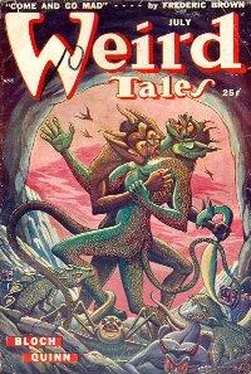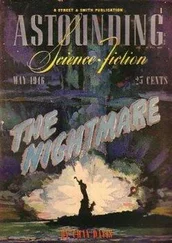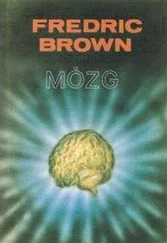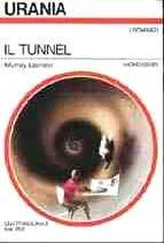Fredric Brown - Come and Go Mad
Здесь есть возможность читать онлайн «Fredric Brown - Come and Go Mad» весь текст электронной книги совершенно бесплатно (целиком полную версию без сокращений). В некоторых случаях можно слушать аудио, скачать через торрент в формате fb2 и присутствует краткое содержание. Год выпуска: 1949, Издательство: Weird Tales, Жанр: Фантастика и фэнтези, на английском языке. Описание произведения, (предисловие) а так же отзывы посетителей доступны на портале библиотеки ЛибКат.
- Название:Come and Go Mad
- Автор:
- Издательство:Weird Tales
- Жанр:
- Год:1949
- ISBN:нет данных
- Рейтинг книги:3 / 5. Голосов: 1
-
Избранное:Добавить в избранное
- Отзывы:
-
Ваша оценка:
- 60
- 1
- 2
- 3
- 4
- 5
Come and Go Mad: краткое содержание, описание и аннотация
Предлагаем к чтению аннотацию, описание, краткое содержание или предисловие (зависит от того, что написал сам автор книги «Come and Go Mad»). Если вы не нашли необходимую информацию о книге — напишите в комментариях, мы постараемся отыскать её.
Come and Go Mad — читать онлайн бесплатно полную книгу (весь текст) целиком
Ниже представлен текст книги, разбитый по страницам. Система сохранения места последней прочитанной страницы, позволяет с удобством читать онлайн бесплатно книгу «Come and Go Mad», без необходимости каждый раз заново искать на чём Вы остановились. Поставьте закладку, и сможете в любой момент перейти на страницу, на которой закончили чтение.
Интервал:
Закладка:
“Dr. Irving?”
“Yes, Mr. Vine. Will you be seated, please?”
He slid into the comfortable, padded armchair across the desk from the doctor.
“Mr. Vine,” said the doctor, “a first interview of this sort is always a bit difficult. For the patient, I mean. Until you know me better, it will be difficult for you to overcome a certain natural reticence in discussing yourself. Would you prefer to talk, to tell things your own way, or would you rather I asked questions?”
He thought that over. He’d had a story ready, but those few words with Charlie in the waiting room had changed everything.
He said, “Perhaps you’d better ask questions.”
“Very well.” There was a pencil in Dr. Irving’s hand and paper on the desk before him. Where and when were you born?”
He took a deep breath. “To the best of my knowledge, in Corsica on August 15th, 1769. I don’t actually remember being born, of course. I do remember things from my boyhood on Corsica, though. We stayed there until I was ten, and after that I was sent to school at Brienne.”
Instead of writing, the doctor was tapping the paper lightly with the tip of the pencil. He asked, “What month and year is this?”
“August, 1947. Yes, I know that should make me a hundred and seventy-some years old. You want to know how I account for that. I don’t. Nor do I account for the fact that Napoleon Bonaparte died in 1821.”
He leaned back in the chair and crossed his arms, staring up at the ceiling. “I don’t attempt to account for the paradoxes or the discrepancies. I recognize them as such. But according to my own memory, and aside from logic pro or con, I was Napoleon for twenty-seven years. I won’t recount what happened during that time; it’s all down in the history books.
“But in 1796, after the battle of Lodi, while I was in charge of the armies in Italy, I went to sleep. As far as I knew, just as anyone goes to sleep anywhere, any time. But I woke up—with no sense whatever of duration, by the way—in a hospital in town here, and I was informed that my name was George Vine, that the year was 1944, and that I was twenty-seven years old.
“The twenty-seven years old part checked, and that was all. Absolutely all. I have no recollections of any parts of George Vine’s life, prior to his—my—waking up in the hospital after the accident. I know quite a bit about his early life now, but only because I’ve been told.
“I know when and where he was born, where he went to school, and when he started work at the Blade. I know when he enlisted in the army and when he was discharged—late in 1943—because I developed a trick knee after a leg injury. Not in combat, incidentally, and there wasn’t any ‘psycho-neurotic’ on my—his—discharge.”
The doctor quit doodling with the pencil. He asked, “You’ve felt this way for three years—and kept it a secret?”
“Yes. I had time to think things over after the accident, and yes, I decided then to accept what they told me about my identity. They’d have locked me up, of course. Incidentally, I’ve tried to figure out an answer. I’ve studied Dunne’s theory of time—even Charles Fort!” He grinned suddenly. “Ever read about Casper Hauser?”
Dr. Irving nodded.
“Maybe he was playing smart the way I did. And I wonder how many other amnesiacs pretended they didn’t know what happened prior to a certain date—rather than admit they had memories at obvious variance with the facts.”
Dr. Irving said slowly, ”
Your cousin informs me that you were a bit—ah—‘hipped’ was his word—on the subject of Napoleon before your accident. How do you account for that?”
“I’ve told you I don’t account for any of it. But I can verify that fact, aside from what Charlie Doerr says about it. Apparently I—the George Vine I, if I was ever George Vine—was quite interested in Napoleon, had read about him, made a hero of him, and had talked about him quite a bit. Enough so that the fellows he worked with at the Blade had nicknamed him ‘Nappy.’ ”
“I notice you distinguish between yourself and George Vine. Are you or are you not he?”
“I have been for three years. Before that—I have no recollection of being George Vine. I don’t think I was. I think—as nearly as I think anything—that I, three years ago, woke up in George Vine’s body.”
“Having done what for a hundred and seventy some years?”
“I haven’t the faintest idea. Incidentally, I don’t doubt that this is George Vine’s body, and with it I inherited his knowledge—except his personal memories. For example, I knew how to handle his job at the newspaper, although I didn’t remember any of the people I worked with there. I have his knowledge of English, for instance, and his ability to write. I knew how to operate a typewriter. My handwriting is the same as his.”
“If you think that you are not Vine, how do you account for that?”
He leaned forward. “I think part of me is George Vine, and part of me isn’t. I think some transference has happened which is outside the run of ordinary human experience. That doesn’t necessarily mean that it’s supernatural—nor that I’m insane. Does it? ”
Dr. Irving didn’t answer. Instead, he asked, “You kept this secret for three years, for understandable reasons. Now, presumably for other reasons, you decide to tell. What are the other reasons? What has happened to change your attitude?”
It was the question that had been bothering him.
He said slowly, “Because I don’t believe in coincidence. Because something in the situation itself has changed. Because I’m tired of pretending. Because I’m willing to risk imprisonment as a paranoic to find out the truth.”
“What in the situation has changed?”
“Yesterday it was suggested—by my employer—that I feign insanity for a practical reason. And the very kind of insanity which I have, if any: Surely, I will admit the possibility that I’m insane. But I can only operate on the theory that I’m not. You know that you’re Dr. Willard E. Irving; you can only operate on that theory—but how do you know you are? Maybe you’re insane, but you can only act as though you’re not.”
“You think your employer is part of a plot—ah—against you? You think there is a conspiracy to get you into a sanitarium?”
“I don’t know. Here’s what has happened since yesterday noon.” He took a deep breath. Then he plunged. He told Dr. Irving the whole story of his interview with Candler, what Candler had said about Dr. Randolph, about his talk with Charlie Doerr last night and about Charlie’s bewildering about-face in the waiting room.
“When he was through he said, “That’s all.” He looked at Dr. Irving’s expressionless face with more curiosity than concern, trying to read it. He added, quite casually, “You don’t believe me, of course. You think I’m insane.”
He met Irving’s eyes squarely. He said, “You have no choice—unless you would choose to believe I’m telling you an elaborate set of lies to convince you I’m insane. I mean, as a scientist and as a psychiatrist, you cannot even admit the possibility that the things I believe— know— are objectively true. Am I not right?”
“I fear that you are. So?”
“So go ahead and sign your commitment. I’m going to follow this thing through. Even to the detail of having Dr. Ellsworth Joyce Randolph sign the second one.”
“You make no objection?”
“Would it do any good if I did?”
“On one point, yes, Mr. Vine. If a patient has a prejudice against—or a delusion concerning—one psychiatrist, it is best not to have him under that particular psychiatrist’s care. If you think Dr. Randolph is concerned in a plot against you, I would suggest that another one be named.”
Читать дальшеИнтервал:
Закладка:
Похожие книги на «Come and Go Mad»
Представляем Вашему вниманию похожие книги на «Come and Go Mad» списком для выбора. Мы отобрали схожую по названию и смыслу литературу в надежде предоставить читателям больше вариантов отыскать новые, интересные, ещё непрочитанные произведения.
Обсуждение, отзывы о книге «Come and Go Mad» и просто собственные мнения читателей. Оставьте ваши комментарии, напишите, что Вы думаете о произведении, его смысле или главных героях. Укажите что конкретно понравилось, а что нет, и почему Вы так считаете.












